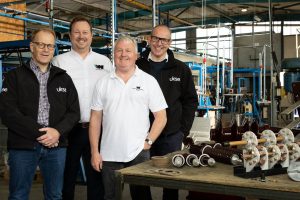Boost for National Express as CMA opts not to refer Thameside extension

BIRMINGHAM-based public transport group, National Express, has received a major boost to its rail division after the Competition and Mergers Authority opted not to refer the extension of its operator franchise for the Essex Thameside service.
The Department for Transport opted to renew the franchise agreement earlier this year. The 15-year contract will see National Express subsidiary c2c build on its service performance as it looks to improve journeys between London and the commuter hubs of Barking, Basildon, Southend and further afield.
The deal had been dependent on statutory clearance and in a brief statement the CMA said that on the information currently available to it, it had decided not to refer the agreement to a Phase 2 investigation under the provisions of the Enterprise Act 2002.
As part of the deal, National Express has committed to rolling out a host of passenger benefits costing around £160m.
The move is in line with a pledge by the DfT to commuters for a fleet of new trains along key lines through East London and Essex. It expects the improvements to deliver tens of thousands more seats and better journeys.
The improvements include:
• an additional fleet of 17 brand new trains providing almost 4,800 extra seats;
• more than 25,000 additional seats for morning peak time passengers every week by the end of the contract;
• free wifi at stations and on board trains;
• an enhanced compensation system, meaning customers who use smart tickets will automatically receive compensation if their train is delayed;
• over £30m invested in improving stations, including Fenchurch Street and Barking;
• complete step-free access at all stations, providing improved accessibility for people with limited mobility and parents with buggies and push chairs; and
• more than 200 new car parking spaces and £457,000 invested in improving cycling facilities and accessibility at stations.
c2c has also committed to hitting tough new targets for punctuality, which means more than 90% of services will be required to reach their destination within one minute of the timetable by December 2018.








